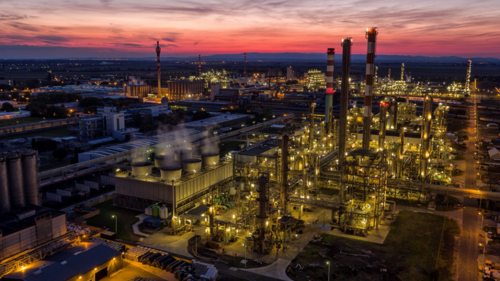
MOL Petrochemical has laid the cornerstone for its new propylene plant in Tiszaújváros, Hungary. The plant, which is part of MOL Group's SHAPE TOMORROW 2030+ strategy, will produce 100,000 tons of propylene per year, meeting a quarter of MOL's chemical raw material needs. The construction of the plant will create thousands of jobs and contribute to the development of Tiszaújváros as a chemical center. The Hungarian government is providing support for the project, which is expected to be operational by 2024.
The cornerstone of MOL Petrochemical's new propylene plant in Tiszaújváros was laid. The plant, which will be built with a HUF 65 billion (EUR 175m) greenfield investment, will produce 100,000 tons of propylene per year, thus significantly covering MOL's chemical raw material needs and increasing the company's self-sufficiency. This plant will also provide propylene to the polyol complex under construction, which will enable Tiszaújváros to become the chemical capital of the region. According to MOL, the construction of the propylene plant will employ thousands of people and create competitive jobs in the long run.
The construction of the new propylene plant is an integral part of MOL Group's updated SHAPE TOMORROW 2030+ strategy, as the development will enable the company to gradually increase the proportion of non-motor fuel products. In the coming years, MOL Group will invest approximately $ 4.5 billion in investments to make Tiszaújváros the number one chemical center in the region.
The new plant will play an important role in the development process, as it will provide a stable supply of raw materials for MOL Petrochemical's three product lines. 100,000 tons of propylene per year provide a quarter of the company’s total needs.
“MOL has developed Tiszaújváros into a chemical center in the last 5-10 years that can compete with the most modern petrochemical metropolises. The butadiene plant, a Japanese rubber rubber plant, has been rebuilt, and one of the largest industrial investments in the last thirty years, the € 1.3 billion polyol plant, has been located in this city, ”said Zsolt Hernádi, President and CEO of MOL Group. , who said that with the construction of the propylene plant, MOL has taken another important step in the chemical transformation and energy transition.
“Thanks to this plant, our self-sufficiency is strengthening, which is a real treasure for the whole country. After all, history has proven time and time again that we must do everything we can to ensure that we do not depend on others. ”
The construction of the plant employs thousands of people, and the proportion of Hungarian suppliers is around 50 percent. The plant is expected to start operating in 2024 and create about 30-40 new, long-term competitive jobs.
The investment is another milestone in a long process: MOL Group has implemented a number of developments in Tiszaújváros. The Butadiene Extraction Plant and the Synthetic Rubber Factory were rebuilt, but the construction of the Polyol Complex, one of the largest investments in domestic industry, was also completed. In addition, the modernization and extension of the life of the Olefin-1 plant, which is currently the largest efficiency improvement program implemented on existing equipment in Hungary, is progressing well.
The Hungarian government is supporting the construction of the plant with HUF 5 billion. At the ceremony, Foreign Minister Péter Szijjártó, Zsolt Hernádi, President and CEO of MOL Group and Member of Parliament Zsófia Koncz laid the cornerstone of the facility.